The Long Day film, unveiling a gripping war narrative through lens of Ukrainian stories, presented in Kyiv
The National Museum of the History of Ukraine in the Second World War has presented The Long Day documentary film directed by Alan Badoiev. The film, released on the tenth anniversary of the Revolution of Dignity, on 21 November, is based on testimonies about the beginning of a full-scale invasion, which Ukrainians themselves filmed on their mobile phones. Before the film's premiere, Badoiev came to the stage and said that his team received video materials from 12,000 Ukrainians; in total, the mobile video they shot was about 200 hours long. "We collected tiny, tiny pieces, sometimes from crushed phones, sometimes from a GoPro camera directly from the frontline.
Ukrainians entrusted us with their most intimate materials," the director admitted. He calls his film "a capsule of an important and difficult time" and emphasises that he made it so that no one could ever "tamper with our history, say that it was somehow different."
Advertisement:"We didn't shoot anything. Everything you see on the screen today is a document.
It's just files sent to us, and we made a film. Sometimes we'd get a file and play it, and we didn't know how a story would end. That is, we would start watching, grow fond of a person, and then realise that the person had already died," Badoiev said.
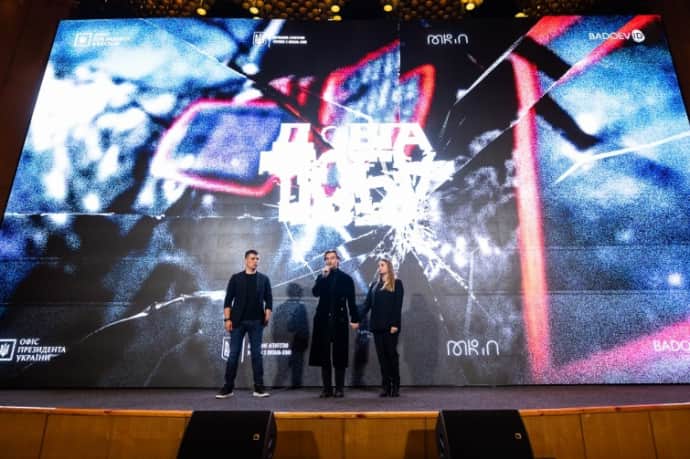 Alan Badoiev and editing director Yana Mazana
Alan Badoiev and editing director Yana Mazana
The Long Day begins with the following story.
The first to appear on the screen is the family of Roman Zhuk, a photographer, videographer, ecoactivist, co-founder of the environmental movement Chysto.de from Mukachevo (Zakarpattia Oblast, the westernmost region of Ukraine) who volunteered to defend the country at the beginning of a full-scale invasion and was killed in action on 26 May 2022. First, the viewer can see the life that Roman, his wife Olena, and their two young sons had before the Russian invasion, and the tape ends with the news of his death and footage of his wife trying to continue her husband's business.
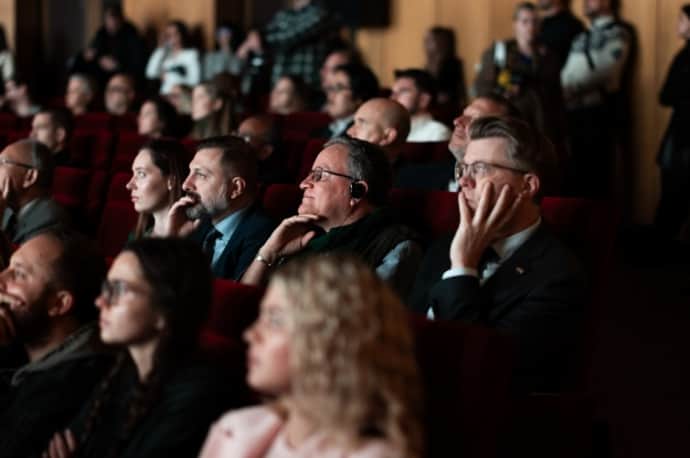 Western diplomats were the first to watch the film
Western diplomats were the first to watch the film
The film, created by Badoev together with the 1+1 Ukraine TV channel, brings to the big screen the stories of Ukrainians from all over Ukraine. For instance, there's a story of a woman from Mariupol who lives in a basement with her daughter and dog; a young couple from Chernihiv whose apartment was destroyed by a Russian projectile; a man from Kyiv Oblast whose father was shot inside a car by a Russian convoy; a singer from Kharkiv who stays in the city under Russian attacks because she has no one to leave with, and a story of two brothers-in-arms, one of whom is wounded and the other one helps him not to lose faith in salvation.
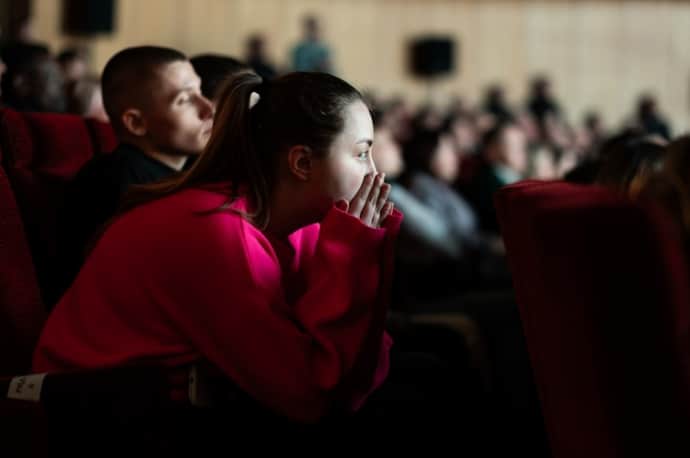
Many people could not hold back their tears
However, the director admits that the story of the Zhuk family was the key to the film's creation: "The work on the film started with the story of Roman Zhuk and his family. It was the starting point for me and the team. I fell so much in love with this sincere and modern Ukrainian family.
And when I realised at the end of the film that Roma had been killed, it was a shock. It was at that moment that I realised that I wanted to show the Ukrainians what kind of people should be living in our homeland. For me, the Zhuk family are the best Ukrainians: free, modern, young, and those who care about their land and, when necessary, go and defend it."
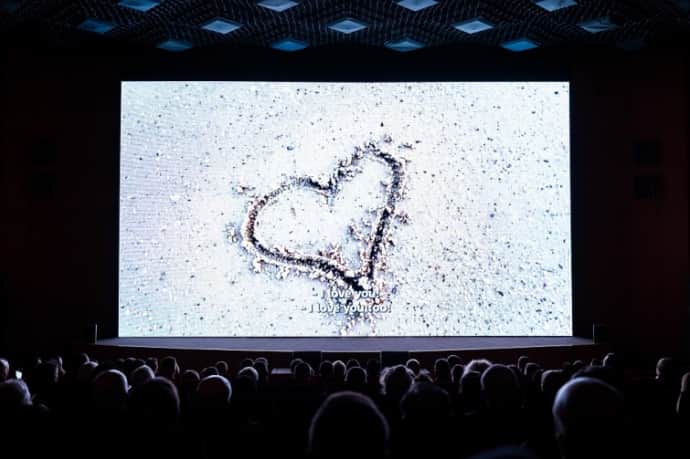
A still from the end of Roman Zhuk's story
There were many Ukrainian military and diplomatic representatives from almost all European and partner countries among the first viewers of The Long Day. There were Karen McTear, Head of the NATO Representation to Ukraine, Oleksandr Pivnenko, commander of the National Guard of Ukraine, and Ivan Vyhivskyi, head of the National Police of Ukraine. Other guests from Badoev's close circle including bloggers and YouTube hosts were also there.
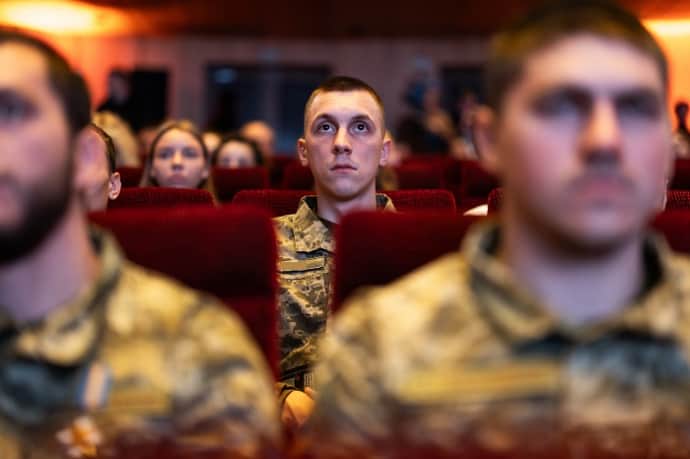
There were a lot of military people at the screening When asked by Ukrainska Pravda.Kuiltura (Culture) what this work on The Long Day changed in Badoev, the famous music video maker, TV show director and music film director, he admits that it was difficult for him:
"I am known as a music video maker. All my life, I was happy to make something very beautiful and tried to share with the viewer how I see this world, its colours and its beauty. Today you have come to watch a documentary about the war.
This is a rather difficult path for my psyche and everything I loved in my life. I did it not because I wanted to make a film. I did it because I couldn't stay silent.
Because it seemed to me that the world was bound to get tired and I needed to have a powerful response to this fatigue."
Support UP or become our patron!